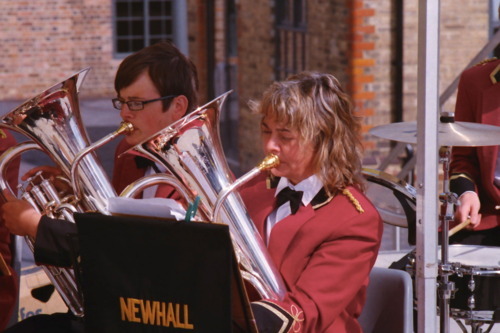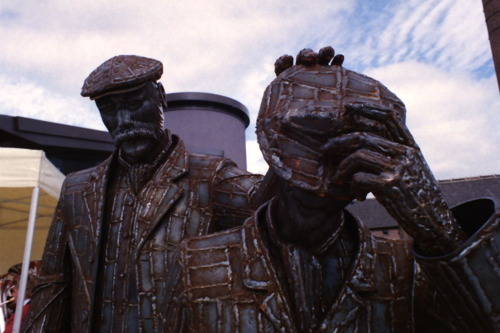Arthur Scargill

A while back, Arthur Scargill visited my local town to unveil a statue dedicated to the mining history of the area and all the coal miners who spent - and in some cases, ended - their lives underground to fuel this country.
For those who aren’t from England (or don’t know anything about the 1970s and 80s), Arthur Scargill was the leader of the National Union of Mineworkers during a very tumultuous period in recent British history, and was a massively polarising figure as a result of the events of that era.

Basically, there were two main crisis points for miners: one in 1973-1974, which came about as a result of wage freezes and inflation that led to “work-to-rule” strikes (a form of strike where you follow the rules to the point of insanity, slowing work down to a crawl), a three-day week and power shortages, and the biggest one, which ran from March 1984 through to March 1985 - which is what is commonly referred to simply as “the Miner’s Strike” in the UK.
A full explaination of the situation - the reasons, the reactions and the fallout - can’t really be gone into here. I could write for days and still not get into the bottom of it. But in a bid to summarize very quickly: At the time, the Coal industry was nationalised, and controlled by the government. The Conservatives, led by Margaret Thatcher, wanted to close various pits around the country, claiming that they simply weren’t profitable. And yes, in fairness, some weren’t - but the closure of mines was decided before commissioned reports on their viability were even collated. And so, the NUM, led by Scargill, went on strike. And for a year, it became like a civil war, with some pretty fierce clashes between the striking miners, scabs (miners who continued to work), and the police (who were, at times, horrendously brutal). Public opinion was largely swayed by the anti-striking media, and over the course of the year, the miners (who had to go without wages) slid further and further into poverty and public loathing until they had to cave.

Not long after, Thatcher privatized everything and the vast majority of Britain’s coal mining disappeared. (For an interesting take on the move towards privatization, both in the UK and the US, I strongly suggest you watch the documentary film based on Naomi Klein’s book “The Shock Doctrine”. It’s pretty eye-opening.)
My feelings on the collapse of British industry have been aired here before, and so I’m not going to vent for too long on this subject. But Scargill, in his speech, told the crowds something I already knew: this country still has vast supplies of fairly accessible coal buried beneath it. Coal that could not just fuel power stations using new, cleaner technology, but with coal-to-fuel technology, could also be refined into oil - and, most importantly, petrol, which would lessen the need for both costly middle Eastern wars but also hugely, hugely exploitative deals with multi-national corporations.
So why isn’t it being mined? Well… that’s a different topic, and arguably even more divisive than Scargill himself. I know what I think… and I don’t think it’s in the best interests of our people or our country for it to stay that way, personally.

(All photos taken with a Praktica MTL3 and the new version of Lomography’s 400 colour negative film.)
harmerqjp-blog liked this
adamsimonsanablogue-blog liked this
coldkennels-archive posted this
- Show more notes